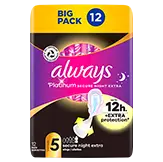
How Does Menstrual Cycle Work?


All content within this page has been reviewed by
Dr Tariq Miskry, Consultant Gynaecologist & Obstetrician





You may have heard a lot of talk about getting your period. Or may have already got it. Congrats!
But what is going on in your body that makes you get your period?
How does the menstrual cycle work exactly?



What is the menstrual cycle?
Put simply, the menstrual cycle is the monthly process of ovulation and menstruation in women. It is controlled by female hormones produced by your ovaries – mainly estrogen and progesterone.
Estrogen and progesterone work together to move your body from one stage of your menstrual cycle to the next.



How long is the menstrual cycle?
The average menstrual cycle is 28 days. But anywhere between 21 to 35 days is considered normal. So don’t worry if your period doesn’t come every 28 days or if your menstrual cycle is irregular. This is especially true if you are new to menstruating. Your body needs time to adjust to the new hormones running through it and can take up to a year to settle in to a regular menstrual cycle.
Knowing how your menstrual cycle works can help you anticipate when you’re going to get your period. Knowing what happens during your menstrual cycle can also help you understand changes you may notice in your body throughout the month. So, here goes.

Knowing how your menstrual cycle works can help you anticipate when you’re going to get your period.
Menstruation
The first day of your period, or menstruation, is counted as the first day of your menstrual cycle.
This is when estrogen and progesterone levels are at their lowest.
This is when the lining of your uterus – a reddish fluid containing blood and tissue known as your endometrial lining – is shed and leaves your body through your vagina.
This lasts anywhere from 3 to 7 days.
Follicular phase
Next, your estrogen levels start to rise, prompting your period to stop.
Estrogen prompts your uterine lining, or endometrium, to start to thicken.
This estrogen also signals to your ovaries that it’s time to start preparing a follicle – a small liquid-filled sac on your ovaries that contains an egg that will later be released.
This is why this phase is known as the follicular phase – or the pre-ovulation phase - of your menstrual cycle.
Follicular phase of menstrual cycle can vary (which explains variation in cycle as luteal phase is constant). Ovulation is 14 days before next period.
Ovulation
Your estrogen levels will continue to rise until the 14th day of your menstrual cycle (if your cycle is 28 days).
This is when the follicle that has been growing for the past week or so releases an egg.
The egg then travels down your fallopian tubes and into your uterus.
At this point, if sperm - the male reproductive cell – is present, the egg will fertilize, attach to the thickened endometrium, and a baby will grow.
The increased hormone levels during ovulation will result in increased vaginal discharge that you may notice in your knickers. Wearing a pantyliner like Always Dailies will help you feel fresh and clean during this time.
Luteal phase
The next thing to happen during your menstrual cycle is a rise in progesterone and a decrease in estrogen. This is known as the luteal phase - or pre-menstrual phase.
Progesterone’s job is to thicken the lining of your uterus, so that the egg you released during ovulation can successfully attach and grow inside your uterus if it was fertilized.
On Days 21 to 24, progesterone reaches its peak. After this, if your egg wasn’t fertilized, progesterone levels start to drop, signalling your body to start breaking down the lining of your uterus.
This is when girls and women start to experience the moodiness, hunger, and cramps of PMS – or premenstrual syndrome.
By definition, your menstrual cycle is just that – a cycle! This means that when you come to the end of it, it starts all over again. After the luteal phase, your cycle starts again on Day 1 when you get your next period.
So, now you know how your menstrual cycle works. This means you can predict when your next period is going to come and can understand changes to your body like increased vaginal discharge and period cramps.
Softness and protection for great comfort is what you probably want the most during your period, even more so if your period in on the heavy side. Always Platinum period pads provide you with all protection while being also gentle to your skin and extremely effective in absorbing any leaks, so you could feel confident and comfortable through the day!



